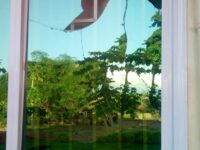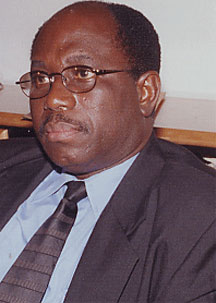 The Ghana Society of the Physically Disabled (GSPD) has filed a motion on notice, praying the Human Rights Division of the High Court to restrain three local airlines from discriminating against persons with disabilities by way of refusing to sell flight tickets to them.
The Ghana Society of the Physically Disabled (GSPD) has filed a motion on notice, praying the Human Rights Division of the High Court to restrain three local airlines from discriminating against persons with disabilities by way of refusing to sell flight tickets to them.
It is also seeking an interlocutory injunction against the respondents not to deny such persons who desire to travel on their aircraft services, pending the determination of a substantive suit.
The respondents are Antrak Air, Africa World Travel and Starbow Air. Joined to the action is the Ghana Civil Aviation Authority, who the applicant wish the court would restrain from overlooking, and or refusing to ensure that the other respondents comply with Section 28 (1) of the Persons with Disability Act, 2006 (Act 715).
Section 28 (1) of Act 715 states that: “The Civil Aviation Authority and any other authority responsible for the management of a port shall provide facilities that will aid the movement of a person with disability at the port”.
An affidavit in support of the motion and deposed by Mr Elvis Kosi Alikpui, a member of the society, said the applicant had caused a writ of summons to be issued against the respondents jointly and severally, which had been duly served on them.
According to the affidavit, the applicant had reliably been informed from a more reliable source that the three respondent airlines, after being served with the writ of summons and statement of claim and having been aggrieved and embarrassed by the action, had decided to take some steps to also embarrass and deny their services to members of the applicant.
It said the applicant had been informed that the three airlines had vowed not to make their services accessible to any of the applicant’s members and or persons with disability as a whole.
The affidavit expressed the belief that if the three airlines were allowed to continue with their discriminatory acts, it would not be only members of the applicant organisation that would suffer, but also other innocent persons with a disability.
The plaintiff is being represented by Dr Kwaku Nsiah, an Accra-based lawyer.
Reaction
When contacted, an official of Antrak Airline said, “We handle passengers with reduced mobility, although there are categories that we are unable to accept for carriage since we do not have the equipment to handle such, and may add more complications to passengers if compromised.”
The official said it could handle passengers requiring wheelchairs for ramp and for distance to and from the aircraft.
What we cannot do
The airline official, however, said, “We are unable to process the following: “Wheelchair for Stairs ( WCHS). Passenger is unable to ascend/descend steps, but is able to make own way to/from cabin seat, requires wheel chair for distance to/from aircraft and must be carried up and down the stairs.
“Wheelchair for Cabin Seat (WCHC). Passenger is completely immobile; requires wheelchair to/from aircraft and must be carried up/down steps and to/from the cabin seat,” the statement said.
“The codes above are International Air Transport Association (IATA) Standard of categorisation of Wheelchair passenger(s) and wheelchair for Ramp (WCHR) is the category of Wheelchair passenger(s) Antrak Air carries. The passenger in question is a Wheelchair for Cabin Seat (WCHC) and Antrak Air cannot carry,” it said.
Need for advanced notice
On the part of Africa World Travel, the Operation Officer of the company, Mr Apigy Afednu, insisted that his company was on record for airlifting persons with disabilities and could not explain why it was jointly sued.
He, however, explained that for people in that category, there was the need for forehand knowledge to enable the airline to put in place the needed facilities. Mr Afednu emphasised that safety was paramount in the airline industry, stressing that “Normally, when you call to buy an air ticket, we ask you a lot of leading questions, for instance if you have a special need.
“If you do not declare in advance that you are disabled and all of a sudden you appear, and you are wheelchair bound, we cannot do much,” he said.
Mr Afednu said the association should have sought for an amicable solution instead of resorting to the law court.





